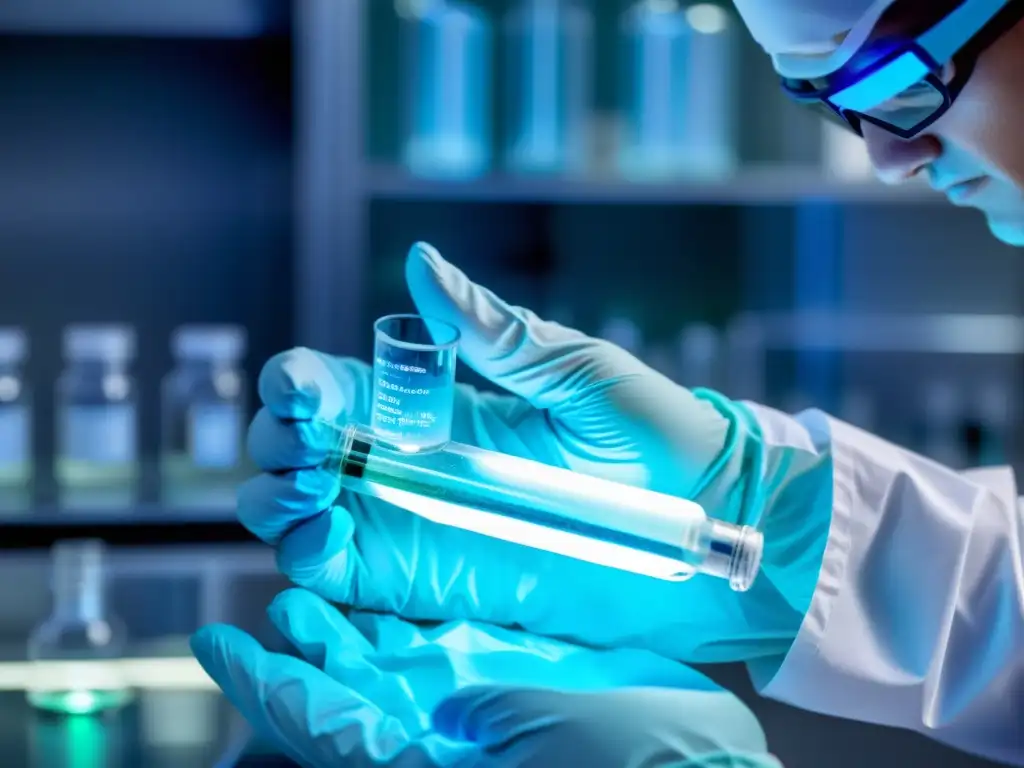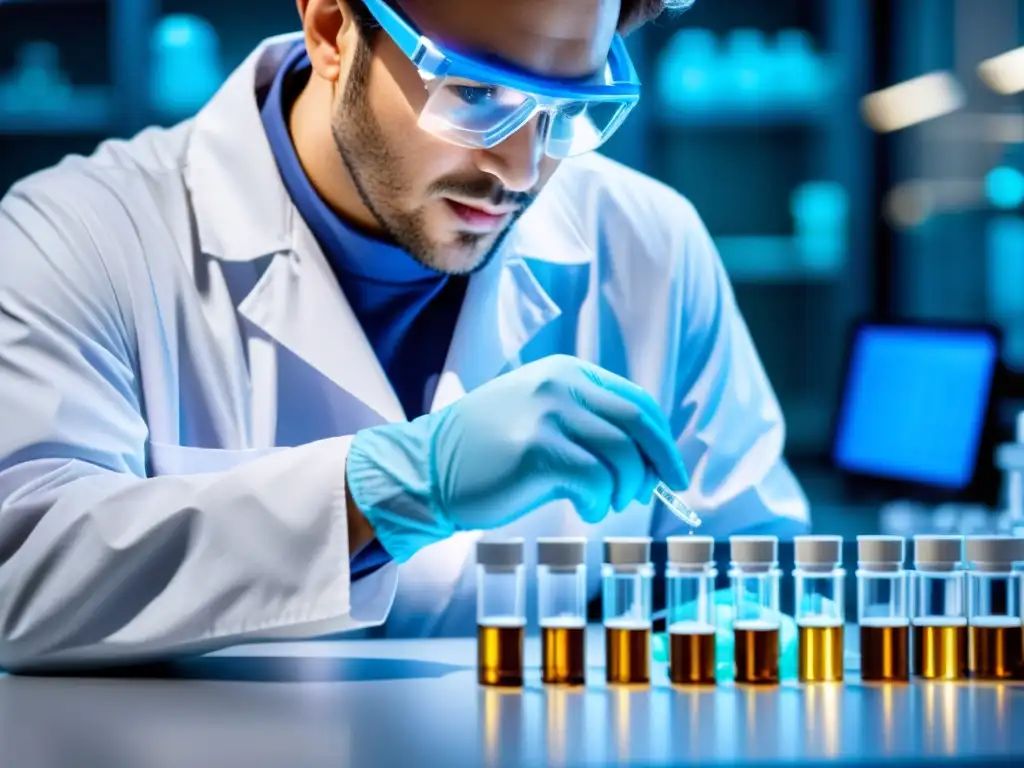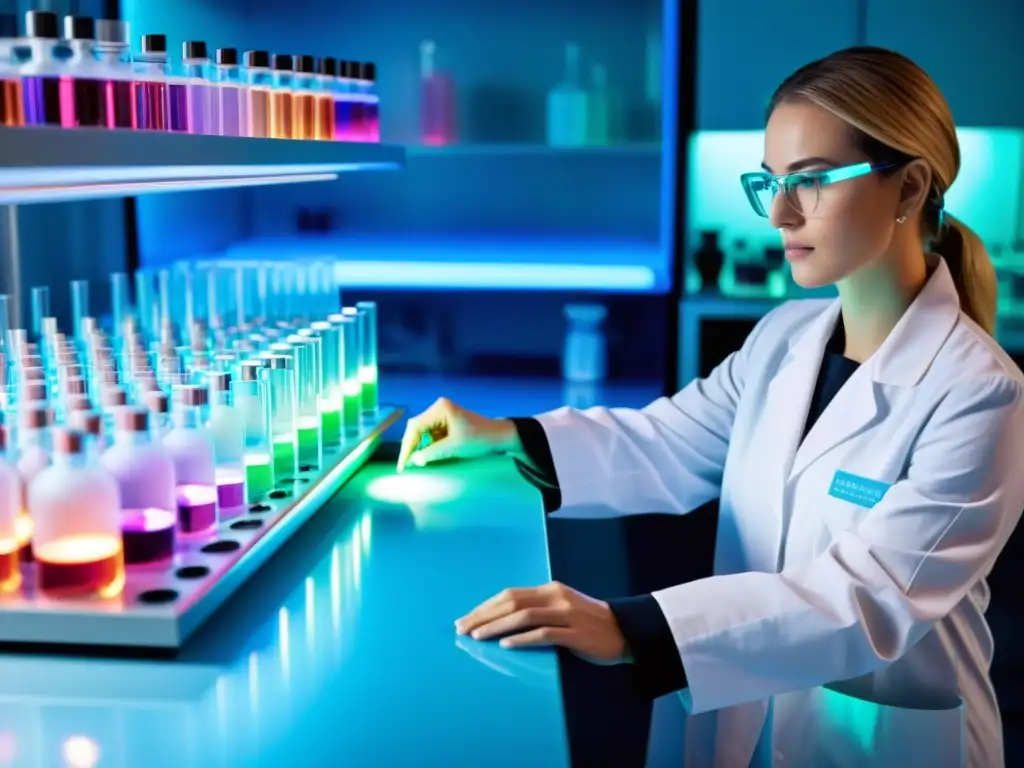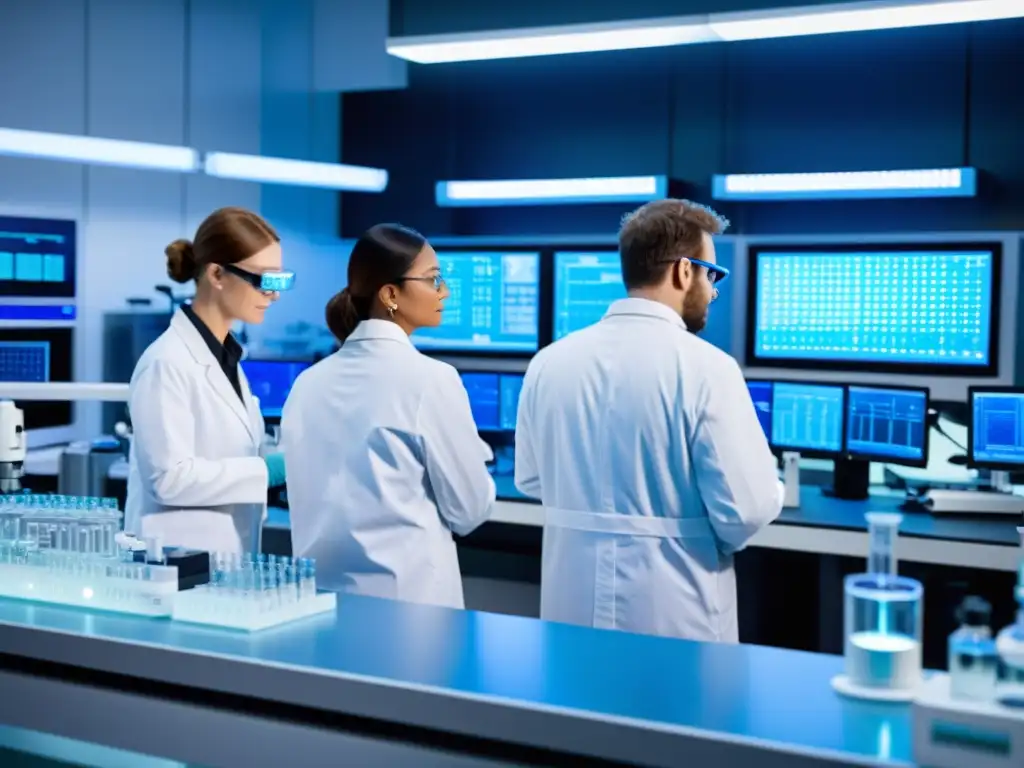The Impact of Biotechnology on Vaccine Manufacturing: Rapid Responses to Global Pandemics
Introduction

Biotechnology has revolutionized vaccine manufacturing, enabling rapid responses to global pandemics. The adaptability and agile production offered by this discipline have proven crucial in the fight against infectious diseases. Below, we'll explore the impact of biotechnology on vaccine manufacturing and its pivotal role in responding to global pandemics.
The impact of biotechnology on vaccine manufacturing
Biotechnology has radically transformed the vaccine manufacturing process, enabling the creation of safer and more effective vaccines. Genetic engineering and cell culture techniques have enabled the production of recombinant vaccines, which are more precise and less prone to unwanted side effects. These advances have paved the way for the development of more efficient and targeted vaccines to combat a wide range of diseases, from influenza to emerging diseases such as Ebola and COVID-19.
Furthermore, biotechnology has significantly accelerated the process of vaccine development and production, which is crucial in emergency situations such as global pandemics. The ability to genetically manipulate microorganisms to produce specific viral antigens has enabled a faster and more effective response to the spread of infectious diseases, which in turn has saved countless lives around the world.
Biotechnology has revolutionized vaccine manufacturing, enabling faster and more effective responses to global pandemics and laying the groundwork for greater safety and efficacy in immunization against infectious diseases.
Challenges and benefits of biotechnology in vaccine manufacturing

Vaccine manufacturing currently presents several challenges, especially in the context of global pandemics. One of the main challenges lies in the need to develop vaccines quickly and effectively to address new threats to public health. Biotechnology plays a fundamental role in overcoming these challenges, as it allows for the acceleration of the vaccine development and production process, which is crucial in health emergency situations.
Another major challenge in vaccine manufacturing is the genetic variability of pathogens, which makes it difficult to create effective vaccines. Biotechnology offers tools to address this variability, enabling the design of more precise vaccines tailored to the specific characteristics of each pathogen, contributing to improved vaccine efficacy.
Furthermore, the distribution and storage of vaccines, especially in remote or hard-to-reach regions, represents a significant logistical challenge. Biotechnology has also provided innovative solutions in this regard, facilitating the development of vaccines that require less stringent storage conditions, thereby expanding the accessibility of these important disease prevention tools.
Benefits of biotechnology in vaccine manufacturing
Biotechnology has revolutionized vaccine manufacturing, providing numerous benefits that have transformed the way we confront infectious diseases. One of the main benefits lies in biotechnology's ability to accelerate the vaccine development process, enabling a faster and more effective response to new public health threats.
Another significant benefit is the possibility of producing safer and more effective vaccines thanks to biotechnological innovations. Genetic engineering, for example, has enabled the development of vaccines based on messenger RNA technologies, which have proven highly effective and safe in the context of the COVID-19 pandemic, marking a milestone in the history of immunization.
Furthermore, biotechnology has paved the way for the creation of more personalized vaccines tailored to the needs of specific populations, representing a significant advance in personalized medicine and disease prevention.
Impact of biotechnology on vaccine efficacy
The impact of biotechnology on vaccine efficacy is undeniable, as it has enabled the development of more effective, safer, and more tailored vaccines to the needs of the population. Thanks to biotechnology, vaccine efficacy has been increased, side effects reduced, and development times shortened, which has been especially relevant in the context of global pandemics.
Biotechnology's ability to understand and manipulate biological mechanisms has made it possible to optimize the immune response generated by vaccines, which has contributed to improving their efficacy and durability over time. Biotechnology has also boosted research and development of new vaccine platforms, paving the way for innovations that promise to revolutionize immunization in the future.
The impact of biotechnology on vaccine efficacy has been instrumental in addressing current challenges in vaccine manufacturing, and its continued advancement promises to further improve the prevention and control of infectious diseases on a global scale.
Technological advances in vaccine production through biotechnology
Biotechnology has revolutionized vaccine production, enabling the development of more efficient processes and the creation of innovative vaccines. One of the most significant advances has been the use of genetic engineering to produce specific antigens more quickly and accurately. This has enabled the creation of recombinant vaccines, which are made from genetically modified organisms that produce specific antigens. This approach has proven crucial in responding rapidly to global pandemics, as it accelerates the vaccine development and production process, which in turn contributes to the containment of infectious diseases.
Another important advance in biotechnology-based vaccine production is the use of cell cultures instead of traditional methods involving chicken eggs. This transition has increased production capacity, reduced development times, and minimized the risk of contamination. Furthermore, the use of cell cultures facilitates the production of vaccines for viruses that cannot be cultured in eggs, significantly expanding the spectrum of diseases that can be addressed through vaccination.
Furthermore, the implementation of genomic sequencing technologies has contributed to accelerating the identification of pathogens and the design of more precise vaccines. The ability to rapidly sequence the genome of a virus or bacteria allows scientists to develop vaccines tailored to specific variants of an infectious agent, which is critical in the context of mutations and new strains that may emerge during a pandemic. These advances in biotechnology-based vaccine production represent a significant milestone in humanity's ability to respond swiftly and effectively to global health challenges.
Applications of biotechnology in the manufacture of vaccines for global pandemics

Biotechnology has revolutionized vaccine manufacturing, enabling the development of personalized vaccines tailored to each patient's individual needs. Through the use of techniques such as genetic engineering, vaccines can be designed to trigger specific immune responses, making them especially effective in treating complex diseases such as cancer. This personalized approach represents a significant advance in the fight against diseases that previously had limited treatment options.
Furthermore, biotechnology has enabled the production of messenger RNA (mRNA) vaccines, which represent a significant innovation in the response to global pandemics. These vaccines, like those developed to combat COVID-19, can be produced rapidly and adapted to new variants of the virus. The flexibility and effectiveness of this approach make biotechnology a crucial tool in responding to global health challenges.
Biotechnology's ability to create personalized vaccines is critical to addressing public health challenges, enabling the development of targeted solutions for different populations and at-risk groups. The combination of biotechnology and precision medicine offers transformative potential in the fight against infectious and chronic diseases.
Mass production of vaccines in times of pandemic
In times of health crises, such as the COVID-19 pandemic, biotechnology has demonstrated its ability to scale vaccine production quickly and efficiently. Emerging technologies, such as animal cell bioreactors and protein expression platforms, enable large-scale vaccine manufacturing in record time.
The flexibility of biotechnology processes makes it possible to adapt production facilities to meet vaccine demand in emergency situations. This agility in pandemic response is essential to containing the spread of infectious diseases and saving lives globally.
Biotechnology has not only facilitated the mass production of vaccines but has also helped optimize formulation, packaging, and distribution processes. These advances have been instrumental in ensuring equitable access to vaccines worldwide, which is crucial in the fight against global pandemics.
Biotechnology's ability to rapidly adapt to new viral strains is a key component in responding to evolving health challenges. By using flexible and modular platforms, researchers can design and produce vaccines that are effective against emerging virus variants, such as influenza or coronavirus mutations.
Biotechnology enables the rapid reconfiguration of existing vaccines to address the unique characteristics of new viral strains, which is critical to maintaining the effectiveness of immunization strategies over time. This adaptability is essential in the fight against global pandemics, as it allows vaccine manufacturers to keep pace with the evolution of pathogens and respond promptly to emerging public health threats.
Furthermore, biotechnology's flexibility in adapting to different viral strains provides the opportunity to develop multivalent vaccines that can offer protection against multiple variants of a virus, representing a significant advance in preparing for future pandemics and protecting against ever-changing viral threats.
Innovations in vaccine distribution and storage thanks to biotechnology
Biotechnology has revolutionized the way vaccines are distributed and stored, significantly impacting the response capacity to global pandemics. Thanks to genetic engineering and bioprocessing techniques, more stable vaccines have been developed that do not require extremely low temperatures for storage. This has paved the way for more efficient and accessible distribution, especially in resource-limited regions.
Furthermore, biotechnology has enabled the creation of messenger RNA (mRNA) vaccines, which represent a milestone in the history of immunization. These vaccines, like those developed to combat COVID-19, are not only highly effective but also easier to produce compared to traditional vaccines. This innovation has accelerated vaccine development and production times, which is critical in the fight against pandemics.
Biotechnology has transformed vaccine logistics, providing innovative solutions to address the challenges of global distribution and storage.
The Future of Vaccine Manufacturing: Prospects and Challenges

The application of biotechnology in vaccine manufacturing has seen significant advances, generating emerging trends in this field. One of the most prominent trends is the use of messenger RNA (mRNA) platforms for vaccine development, as seen in the rapid development of COVID-19 vaccines. This technology enables a more agile response to new viral threats, representing a radical shift in the way global pandemics are addressed. Furthermore, genetic engineering and synthetic biology are increasingly being explored to optimize vaccine production, promising to revolutionize the way vaccines are manufactured and distributed globally.
Another notable trend is the use of stem cell bioreactors for vaccine production, which provides a more efficient and scalable method compared to conventional cell culture systems. These technological advances are paving the way for more agile, personalized, and adaptable vaccine manufacturing to meet the specific needs of the population, representing a milestone in the fight against infectious diseases.
It is crucial to recognize that these emerging trends in the application of biotechnology in vaccine manufacturing present ethical and regulatory challenges that must be comprehensively addressed to ensure their safe and effective implementation on a global scale.
Ethical and regulatory challenges in the implementation of biotechnology in vaccine manufacturing
The rapid advancement of biotechnology in vaccine manufacturing raises fundamental ethical challenges, such as equity in access to new technologies and transparency in the collection and use of genetic data. The issue of global equity in access to vaccines developed with cutting-edge technologies is particularly relevant, as it raises questions about the fair and equitable distribution of biotechnology benefits between developed and developing nations.
Regarding regulatory challenges, it is essential to establish robust regulatory frameworks that address the safety, efficacy, and quality of biotechnology-produced vaccines. Rigorous assessment of potential risks and the implementation of biosafety measures are critical aspects that require priority attention to ensure public confidence and the protection of public health.
Furthermore, protecting the privacy and security of genetic data used in vaccine development and manufacturing represents a highly significant ethical and legal challenge, requiring a comprehensive and collaborative approach among the various actors involved in the vaccine supply chain.
Potential impact of biotechnology on the prevention and control of future global pandemics
The potential impact of biotechnology on the prevention and control of future global pandemics is significant, as it offers innovative tools to anticipate and rapidly respond to emerging public health threats. The ability to develop highly effective vaccines in record time, as evidenced during the COVID-19 pandemic, illustrates the transformative potential of biotechnology in containing infectious diseases.
Furthermore, the application of biotechnology in vaccine manufacturing enables the rapid adaptation of vaccination platforms to new viral variants, which is essential for maintaining vaccine effectiveness in a dynamic epidemiological environment. This flexibility and rapid response capacity are critical for mitigating the devastating impacts of future pandemics and effectively protecting global health.
Biotechnology is playing a crucial role in the evolution of vaccine manufacturing, posing both ethical and regulatory challenges and potentially having a significant impact on the prevention and control of global pandemics. Continued advancement in this field promises to transform the way we confront infectious diseases, opening up new possibilities for protecting public health worldwide.
Conclusions

Biotechnology plays a fundamental role in the development of vaccines to combat global pandemics. Advances in this field have accelerated the development and production of vaccines to combat emerging infectious diseases. The adaptability and rapid response offered by biotechnology have become a crucial pillar of public health worldwide.
The application of biotechnology in vaccine development has overcome significant challenges and opened up new opportunities for the evolution of these technologies. Advances in the understanding of molecular biology, genetic engineering, and protein production have paved the way for the development of more effective, safer, and adaptable vaccines for the specific needs of each pandemic.
Biotechnology represents an invaluable tool in the fight against infectious diseases, offering innovative, rapid, and effective solutions to address the challenges posed by global pandemics, while opening new doors for the research and development of increasingly sophisticated vaccines.
Frequently Asked Questions
1. What is biotechnology and what are its applications?
Biotechnology is the use of living organisms or biological systems to develop products or technologies . Its applications include medicine, agriculture, and the food industry.
2. What are the benefits of biotechnology in vaccine manufacturing?
Biotechnology enables the development of more effective vaccines and accelerates the production process in response to global pandemics.
3. What are the ethical challenges of biotechnology?
Ethical challenges of biotechnology include genetic manipulation , genetic privacy, and equitable access to advanced medical technologies.
4. How can biotechnology contribute to environmental sustainability?
Biotechnology can develop sustainable biofuels and more efficient agricultural techniques, thereby reducing the environmental footprint of various industries.
5. What is the role of biotechnology in personalized medicine?
Biotechnology allows medical treatments to be tailored to the specific needs of each patient, improving efficacy and reducing side effects. Final reflection: Challenges and benefits of biotechnology.
Biotechnology in vaccine manufacturing is not only relevant today, but is crucial for confronting global pandemics and saving lives. Biotechnology's ability to provide rapid responses to pandemics remains critical in our changing world. As Bill Gates said, "Innovation is the only way to win the race against time." Bill Gates.

Publicar un comentario